Can a Labrador Eat Chicken?
Date Published: February 12, 2024 | Last Modified: February 16, 2024
Before we dive into the details, let's establish this - Labrador retrievers are indeed able to enjoy chicken as part of their diet. In this article, we will explore the numerous health benefits that chicken can offer to your beloved labrador, the potential pros and cons of incorporating chicken into their meals, and address any safety concerns you may have. We'll also touch on the question of whether chicken is toxic to labradors and whether it is truly a good addition to their diet. Stay tuned for a comprehensive guide on all things chicken and labradors!
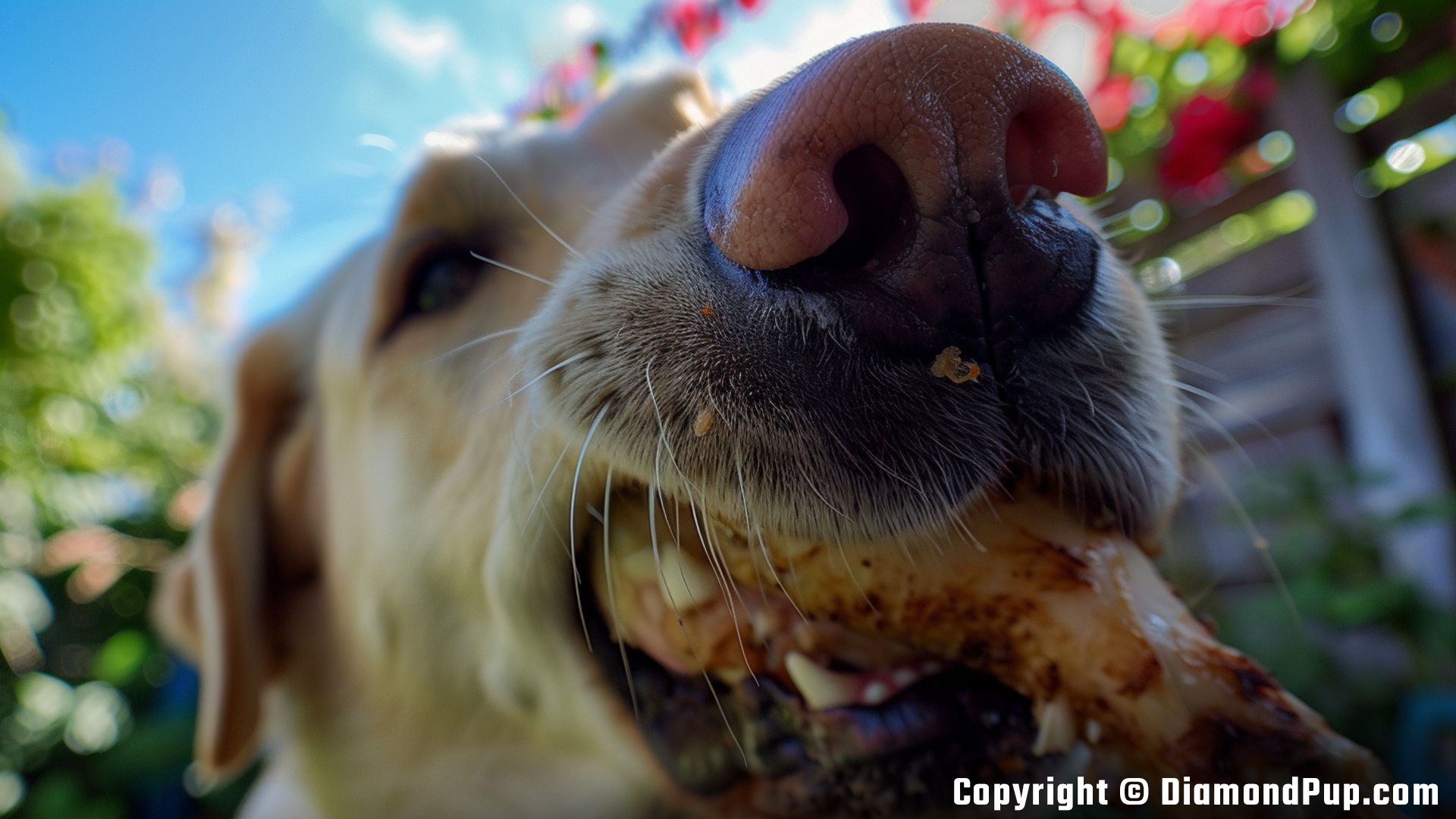
Are Chickens Good for Labradors?
Chicken can be an excellent addition to a Labrador's diet due to its high protein content, which is essential for muscle development and overall health. Additionally, chicken is a good source of nutrients such as B vitamins, zinc, and iron, which are important for supporting your labrador's immune system and metabolic functions. Furthermore, chicken is a lean protein source, making it ideal for maintaining a healthy weight and reducing the risk of obesity in your pet.
However, it is crucial to feed your labrador cooked chicken without any seasoning or bones to prevent any digestive issues or choking hazards. Always ensure that chicken is served in moderation alongside a balanced diet to prevent any nutrient imbalances or excessive calorie intake. Consulting with your veterinarian for specific feeding recommendations tailored to your labrador's individual needs is highly recommended.
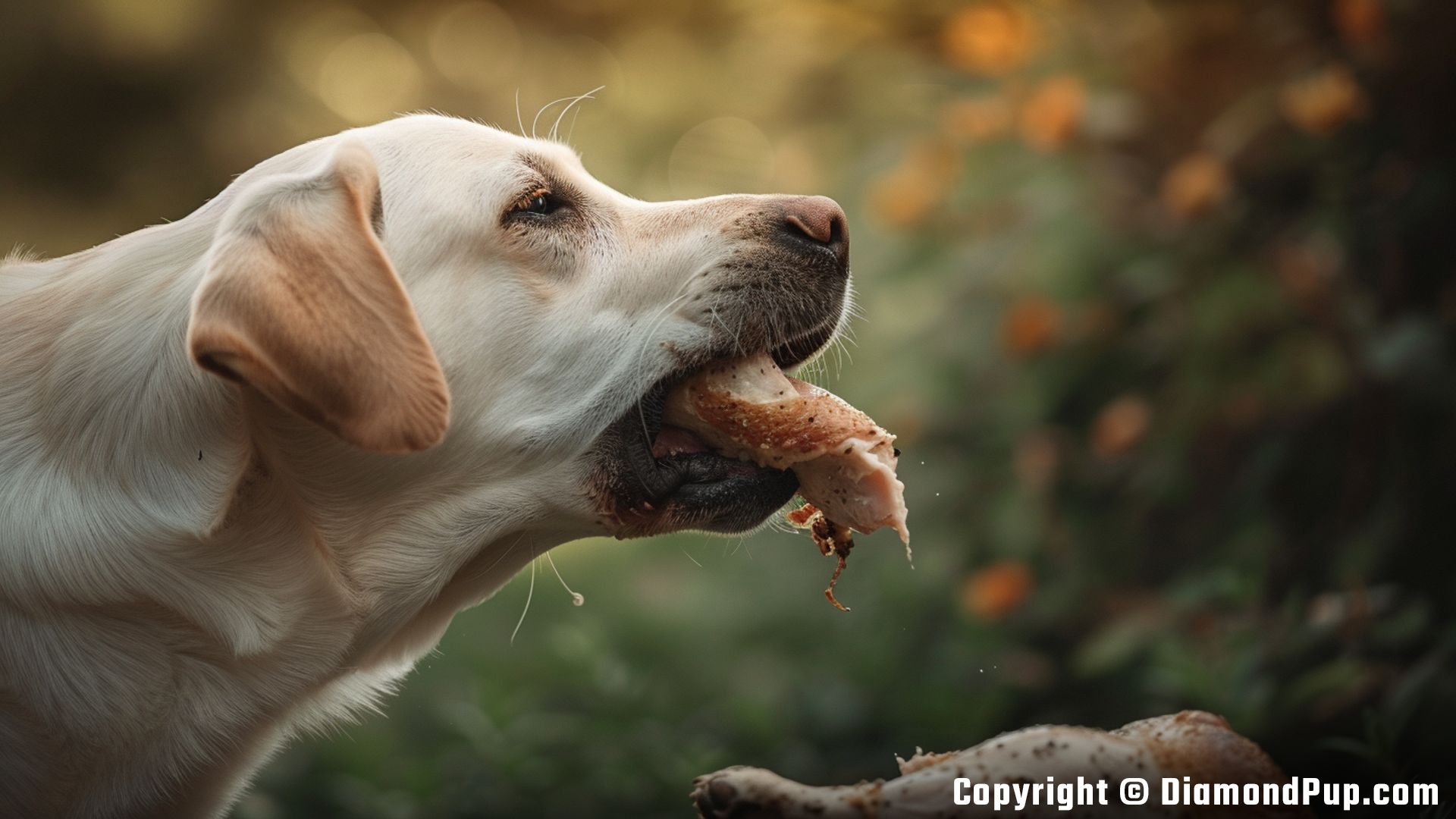
Understanding the Benefits of Chickens for Labradors
Chicken is an excellent protein source for Labradors, containing essential amino acids that support muscle growth and maintenance. The high-quality protein in chicken also helps to keep your Labrador feeling full and satisfied, which can aid in weight management. Additionally, chicken is rich in vitamins and minerals such as B vitamins, iron, zinc, and selenium, which are important for overall health and wellbeing.
Furthermore, chicken is a highly digestible protein source, making it gentle on your Labrador's digestive system. This can be especially beneficial for Labradors with sensitive stomachs or food allergies. Overall, incorporating chicken into your Labrador's diet can provide a range of health benefits and support their overall nutrition needs.
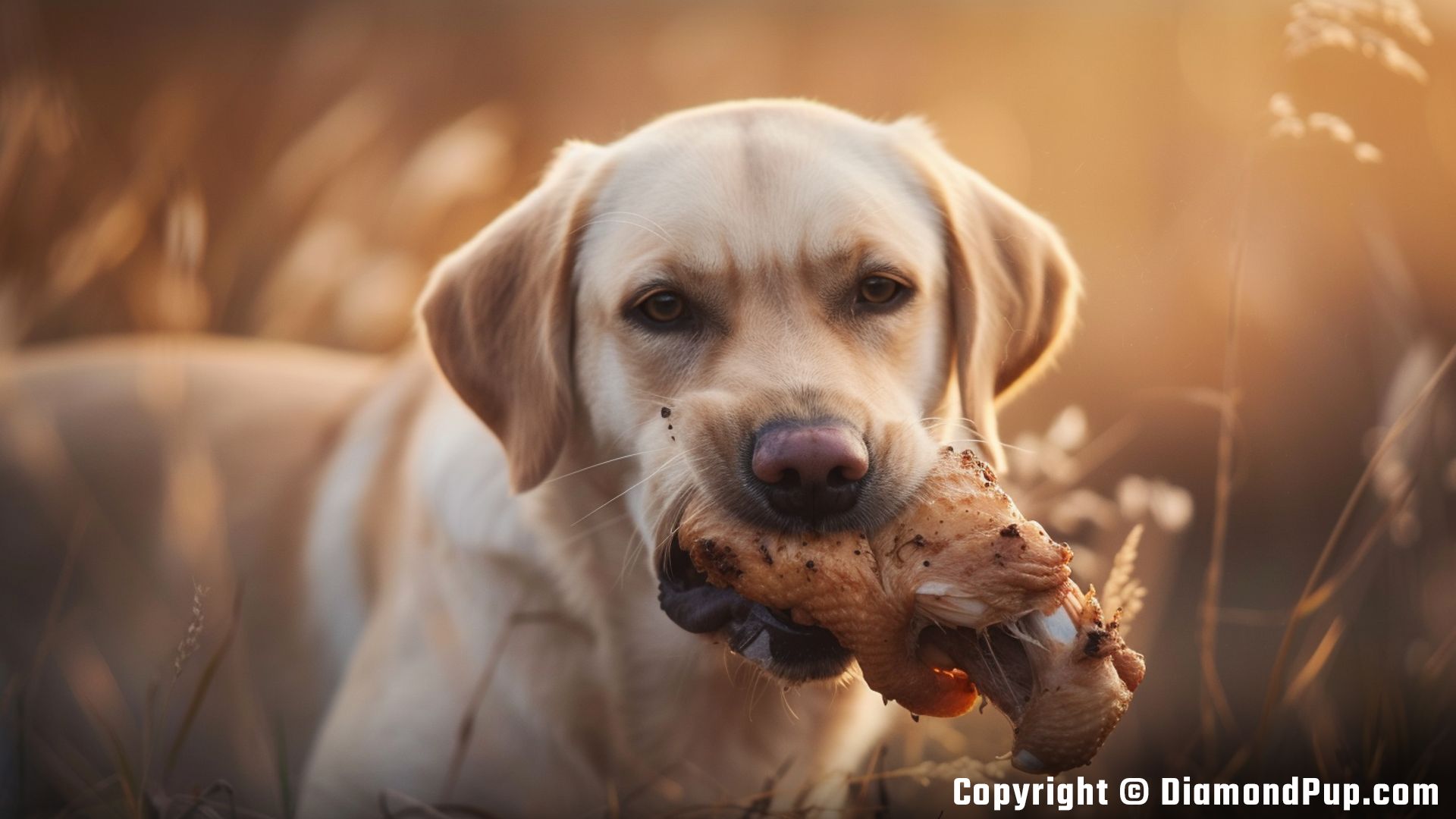
Nutritional benefits of Chickens for Labradors
Chicken can provide numerous nutritional benefits for your Labrador retriever. This lean protein source is rich in essential amino acids, which are the building blocks of muscle and tissue in your dog's body. Additionally, chicken is a good source of vitamins such as B6, niacin, and phosphorus, all of which contribute to your labrador's overall health and wellbeing. The omega-6 fatty acids found in chicken can help support your dog's skin and coat health, keeping them shiny and soft.
When selecting chicken for your labrador, opt for skinless, boneless chicken breasts or thighs to minimize the fat content. It's important to cook the chicken thoroughly to kill any harmful bacteria that could make your dog sick. By incorporating chicken into your labrador's diet in moderation, you can provide them with a nutrient-dense and delicious protein source that supports their health and vitality.
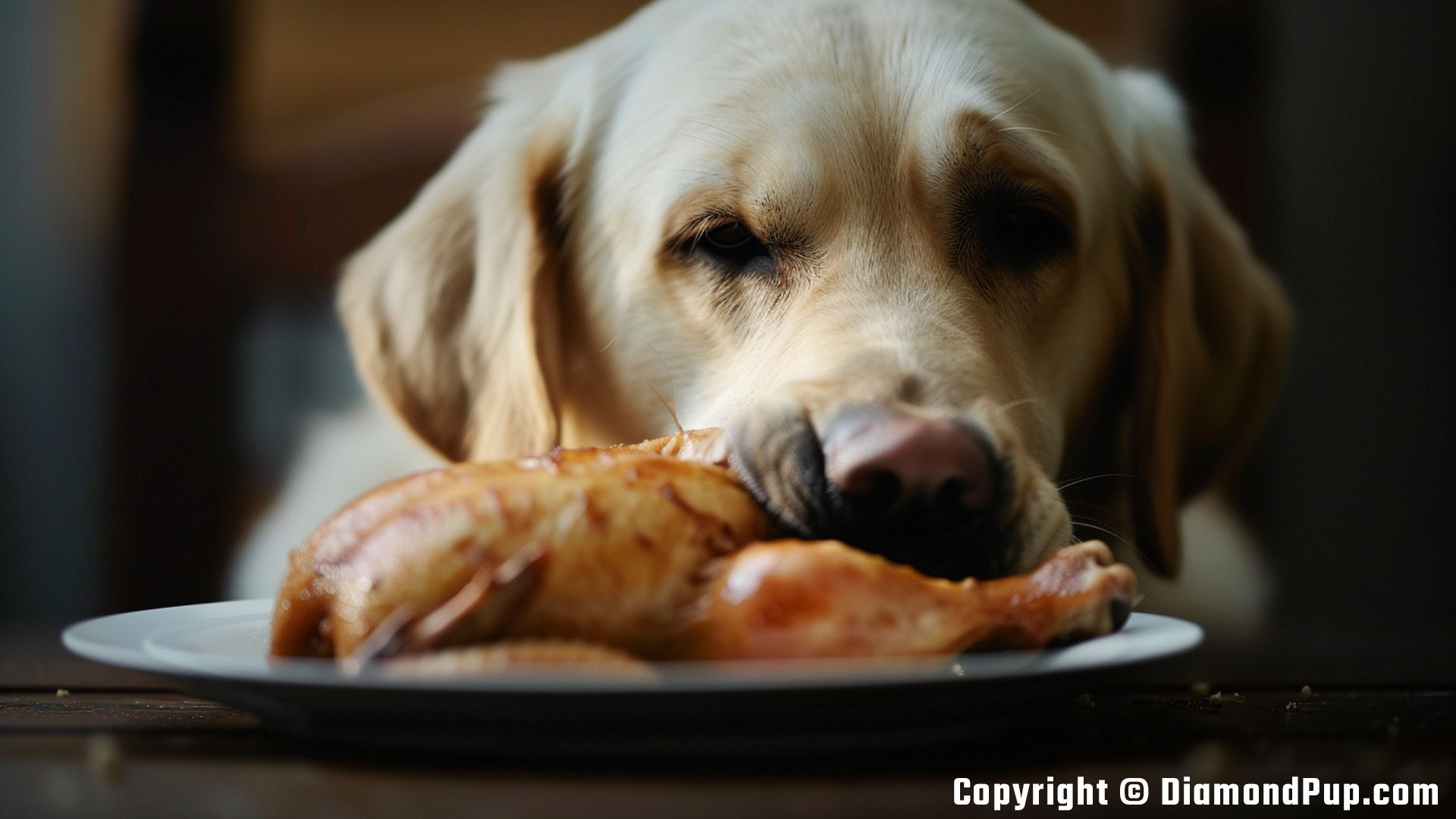
Safely Introducing Chickens to Your Labradors' Diet
When introducing chicken to your Labrador retriever's diet, it's crucial to do so gradually to prevent any gastrointestinal upset. Start by offering small amounts of cooked, boneless, skinless chicken mixed with your dog's regular food. People also ask is chicken good for huskys? Monitor your dog for any signs of allergies or digestive issues, such as vomiting or diarrhea. If your Labrador tolerates chicken well, you can gradually increase the amount over time. It's important to ensure that the chicken is cooked thoroughly to prevent any potential bacterial contamination.
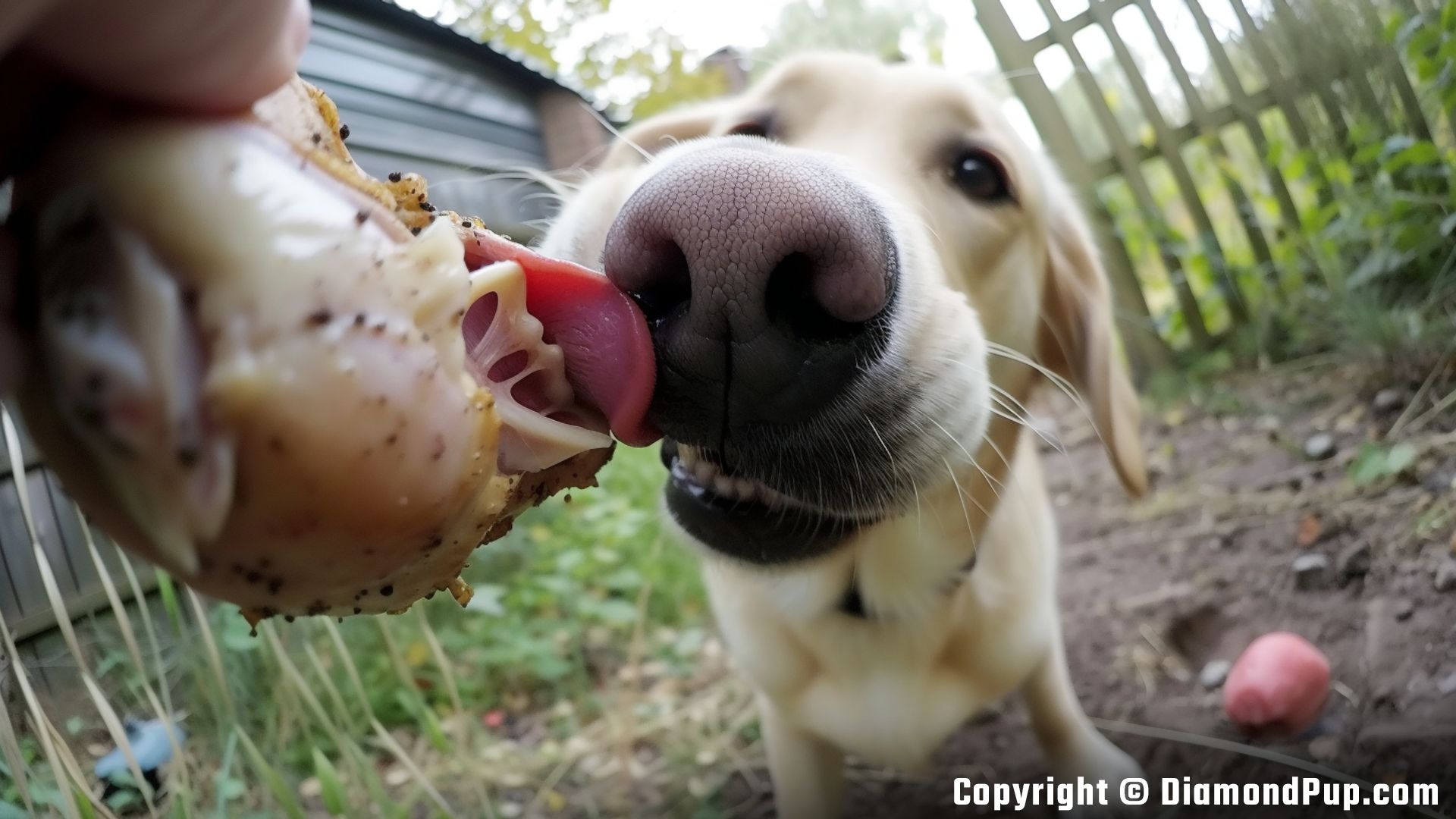
How much chicken can a dog eat safely?
When it comes to feeding your Labrador chicken, moderation is key. A general guideline is to ensure that chicken makes up no more than 10% of your dog's overall diet. This means that for an adult Labrador weighing around 70 pounds, they can safely consume about 1 to 1.5 cups of cooked, boneless, skinless chicken per day. It's important to remember that chicken should not be the sole source of nutrients for your dog, as they require a balanced diet to thrive.
Additionally, it's crucial to avoid feeding your Labrador chicken bones, as they can splinter and cause choking or internal injuries. Always consult with your veterinarian to determine the appropriate amount of chicken to incorporate into your dog's diet based on their size, weight, and overall health status.
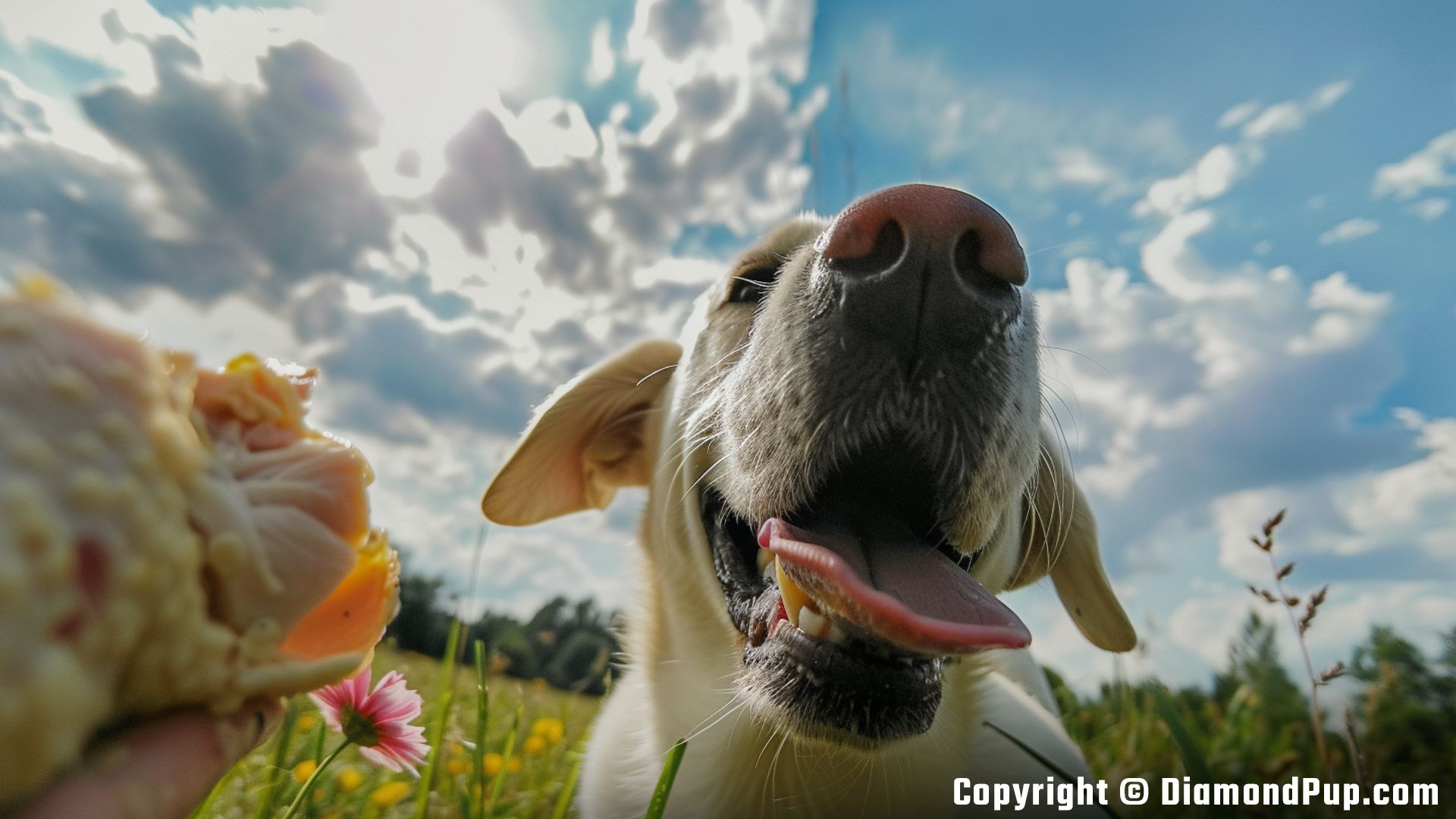
Tips to Remember When Feeding Your Labradors Chickens
When feeding your Labrador chickens, it is important to ensure that the chicken is cooked thoroughly to avoid any potential risks of salmonella or other harmful bacteria. Additionally, it is recommended to remove any bones, as they can pose a choking hazard or cause intestinal blockages in your dog. Remember to monitor your dog's reaction to chicken, as some dogs may have allergies or sensitivities to poultry. People also ask, can poodles eat chicken?, which is essential considering the varied dietary needs across different dog breeds. Finally, chicken should not make up the entirety of your Labrador's diet; it should be incorporated as a part of a balanced diet that includes other sources of protein, carbohydrates, and essential nutrients.
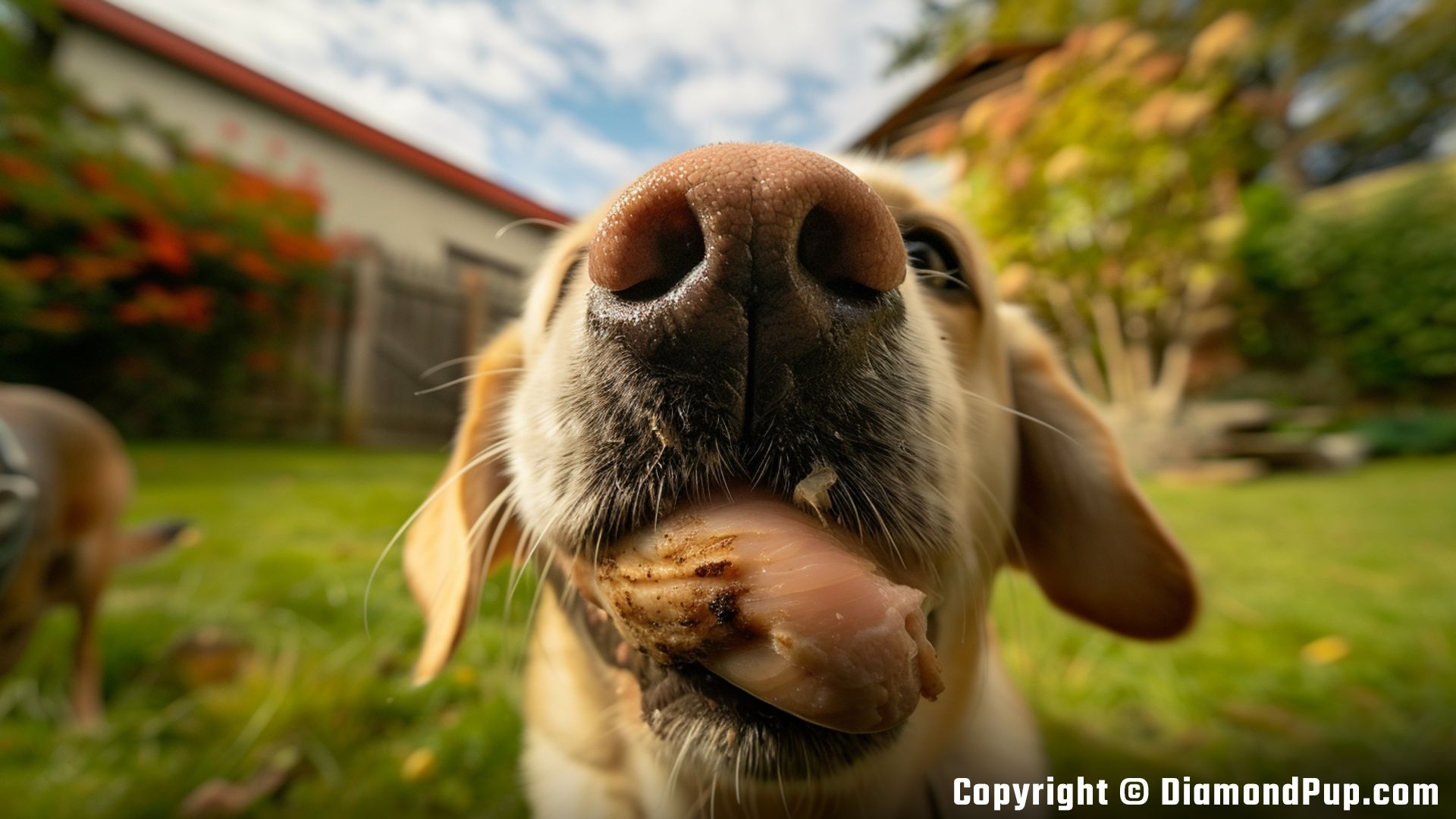
Feeding Your Labradors Chickens
When it comes to feeding your Labrador chickens, it's essential to focus on high-quality, lean chicken meat without any added seasonings or additives. Opt for cooked chicken breast or thigh meat as a protein source, as it is easily digestible for your Labrador. Remember to remove any bones, skin, and excess fat before serving the chicken to your furry friend to avoid any potential choking hazards or digestive issues.
Additionally, ensure that the chicken is thoroughly cooked to eliminate any harmful bacteria that could make your Labrador sick. Chicken can be a great addition to your Labrador's diet as it is a lean protein source that provides essential nutrients like amino acids to support muscle health and overall well-being.
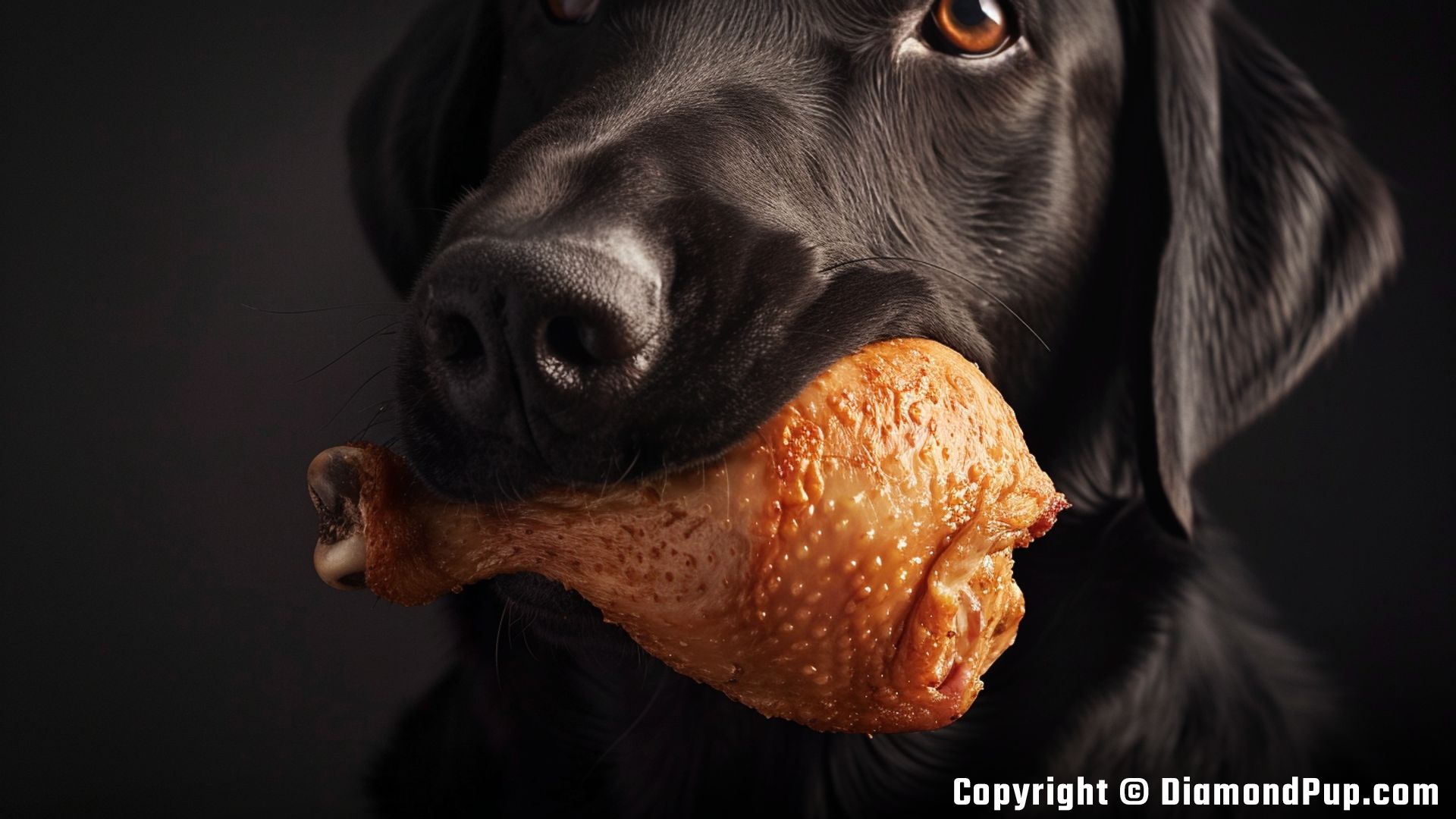
How to properly feed your labradors chickens
When it comes to feeding your Labrador chicken, it's important to ensure that the chicken is fully cooked before serving it to your pet. Raw chicken can contain harmful bacteria such as salmonella, which can make your dog very sick. Additionally, it's best to remove any bones from the chicken before feeding it to your Labrador, as bones can pose a choking hazard or cause internal injuries. Opt for lean cuts of chicken without any added seasoning or sauces, as these can be too rich or high in sodium for your dog.
It's recommended to serve the chicken to your Labrador in small, bite-sized pieces to prevent choking and aid in digestion. Chicken can be a healthy and nutritious addition to your labrador's diet, offering a good source of protein and essential amino acids. However, it's important to ensure that the chicken is just a part of a balanced diet that also includes other nutrients such as carbohydrates, fats, vitamins, and minerals to meet your labrador's nutritional needs.
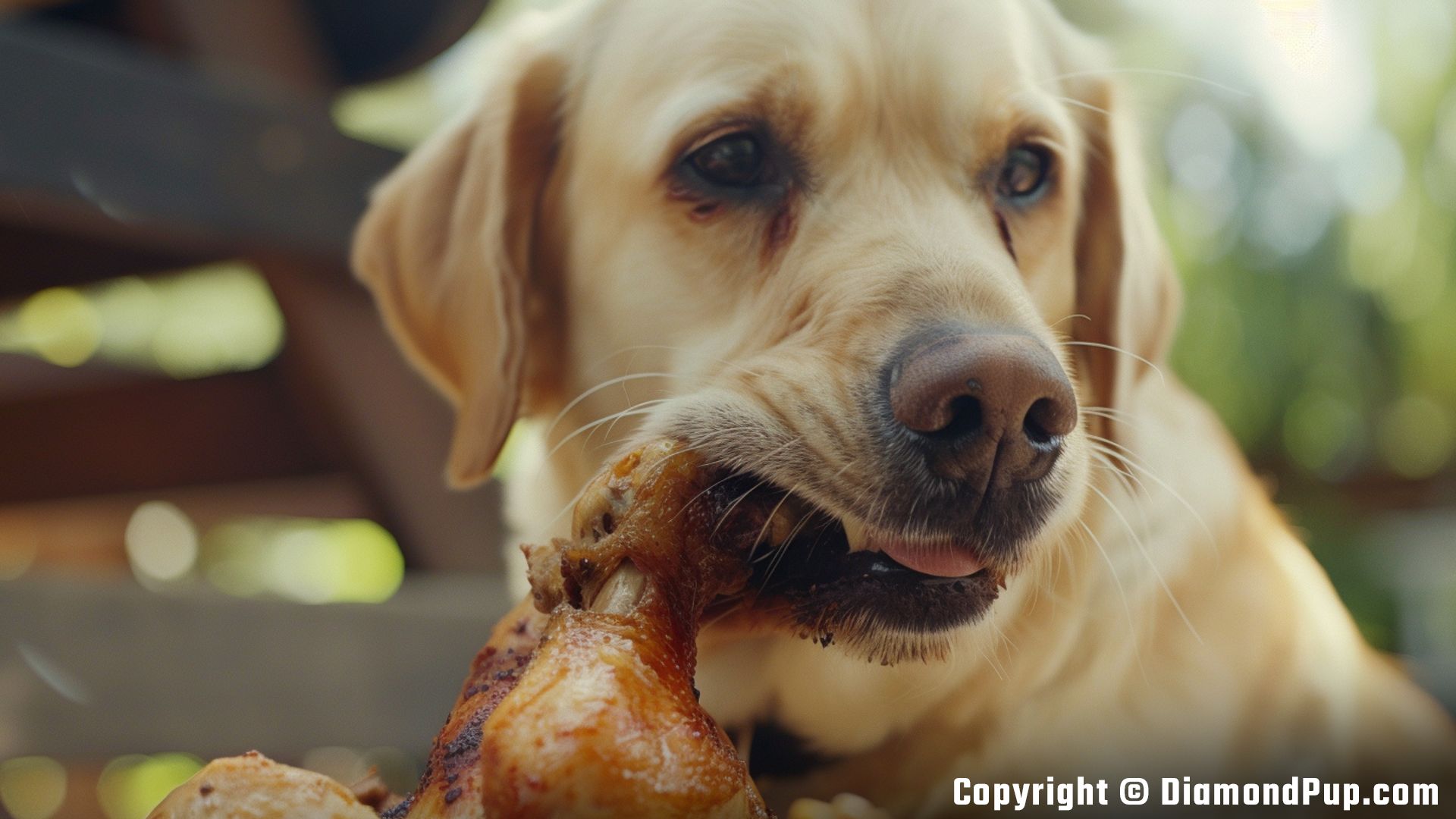
Do Labradors Like Chickens?
Labradors generally love chicken! Due to their history as hunting and retrieving dogs, Labradors have an innate love for all kinds of protein-rich foods, including chicken. The taste and smell of chicken are often appealing to Labradors, making it a great addition to their diet.
When feeding your Labrador chicken, it's important to ensure that it is cooked thoroughly and free from any seasonings or additives that may be harmful to them. Additionally, chicken can be a healthy and delicious way to provide essential nutrients like protein, vitamins, and minerals to your Labrador's diet.
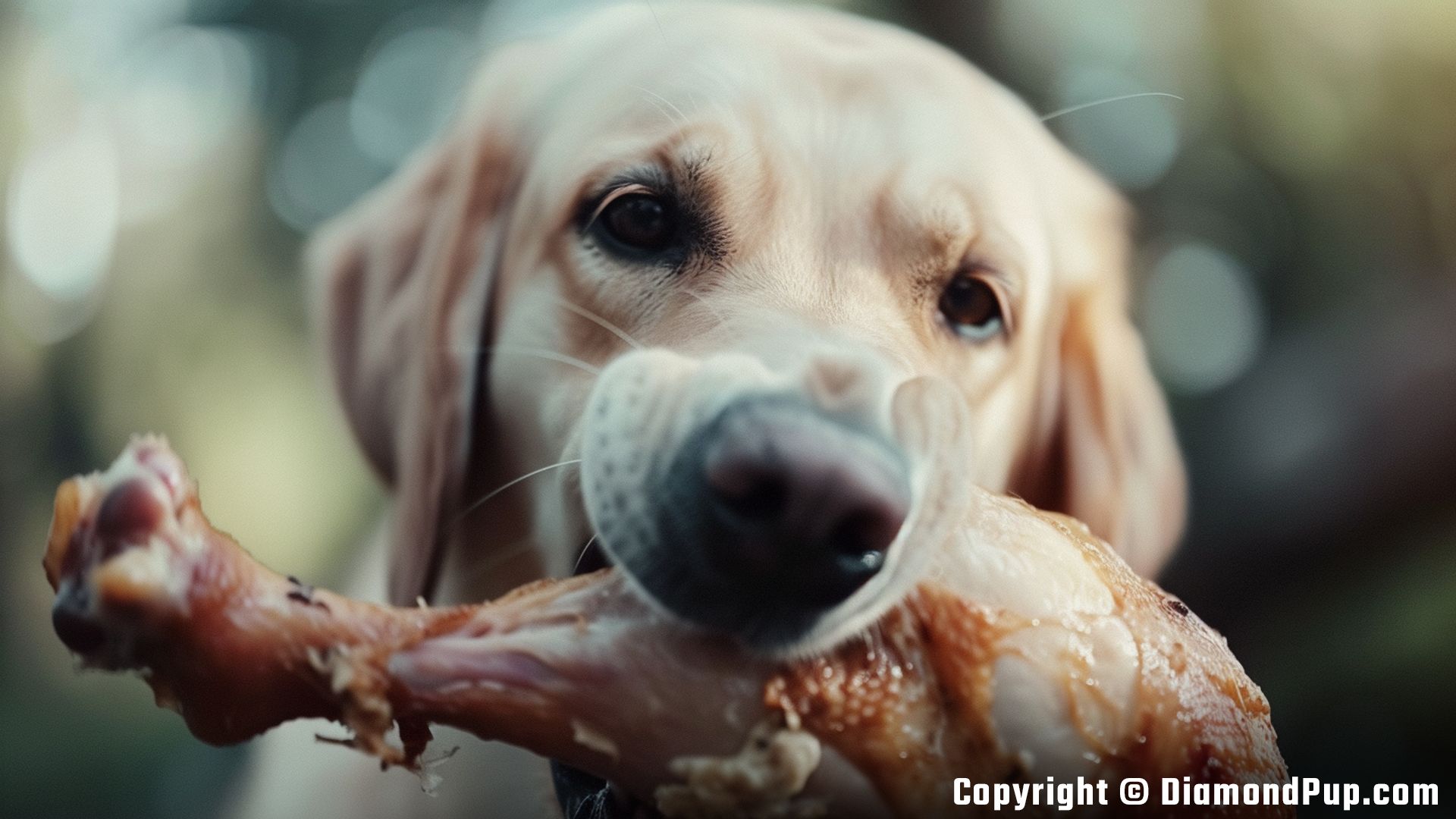
Special Consideration for Labradors
Labradors are known for their hearty appetites and tendency towards obesity, so it's crucial to monitor their food intake, including chicken. When feeding your Labrador chicken, it's important to remove any skin or excess fat to avoid unnecessary added calories. Additionally, make sure to provide the chicken in appropriate portion sizes, taking into consideration their age, weight, and activity level. A balanced diet for a Labrador should consist of high-quality proteins, healthy fats, and essential nutrients to support their overall health and well-being.
Furthermore, it's essential to avoid seasonings or marinades when preparing chicken for your Labrador, as these additives can be harmful to their digestive system. Stick to plain, cooked chicken as a lean protein source for your furry friend. Remember, moderation is key when it comes to incorporating chicken or any other human food into your Labrador's diet to prevent any potential health issues down the line.
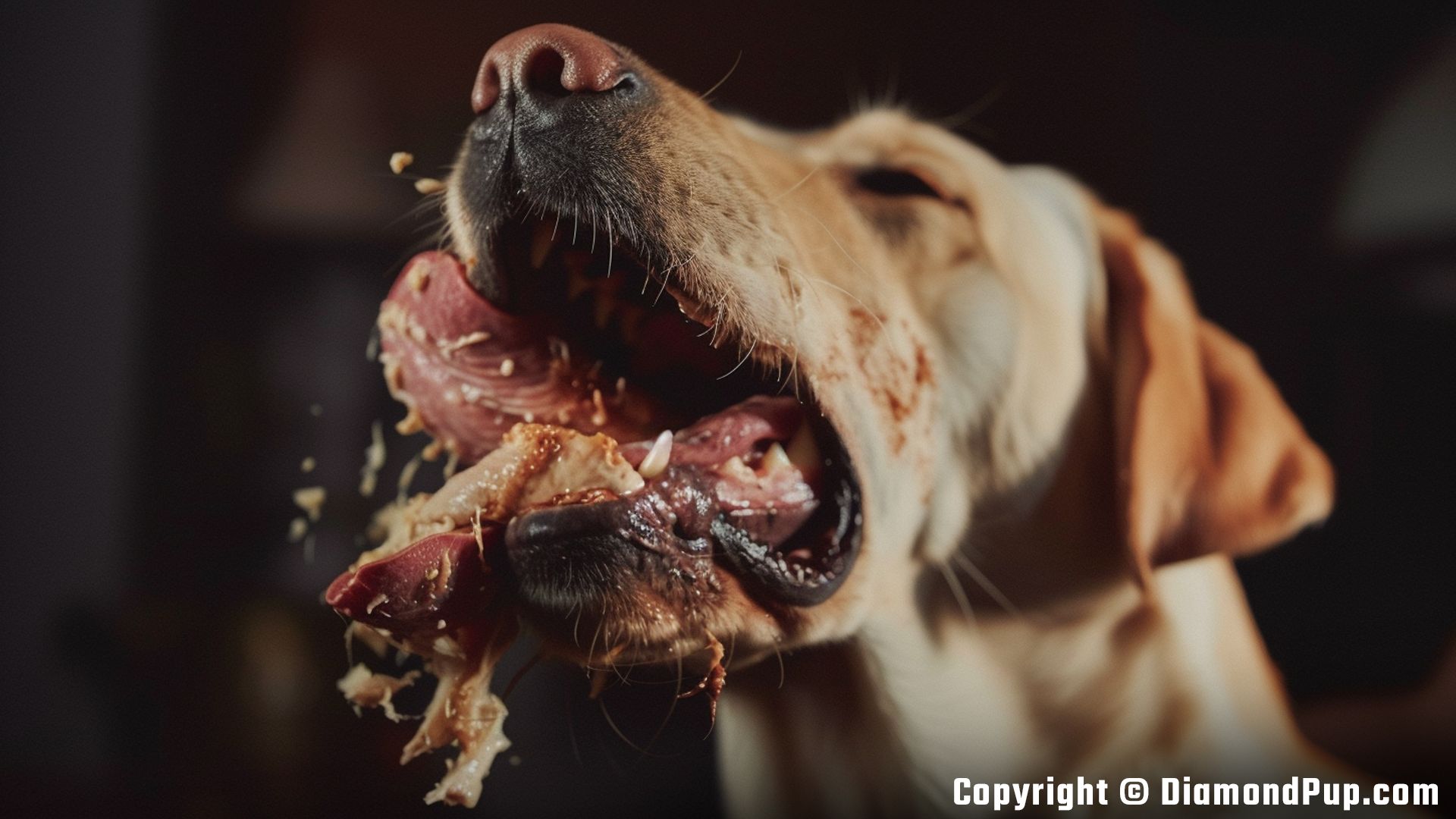
Can Puppies Have Chickens?
Labrador puppies can definitely have chicken as part of their diet, as long as it is properly prepared and given in moderation. Chicken is a great source of protein, which is essential for their growth and development. It also contains important nutrients such as vitamins B6 and B12, niacin, and selenium, all of which are beneficial for their overall health. However, it is crucial to ensure that the chicken is boneless, skinless, and cooked thoroughly to avoid any choking hazards or harmful bacteria like salmonella.
When feeding your Labrador puppy chicken, it's important to use it as a supplement to a balanced diet specifically formulated for puppies. While chicken can be a healthy addition to their meals, it should not make up the majority of their diet. Consult with your veterinarian to determine the appropriate portion size and frequency of feeding chicken to your growing Labrador puppy.
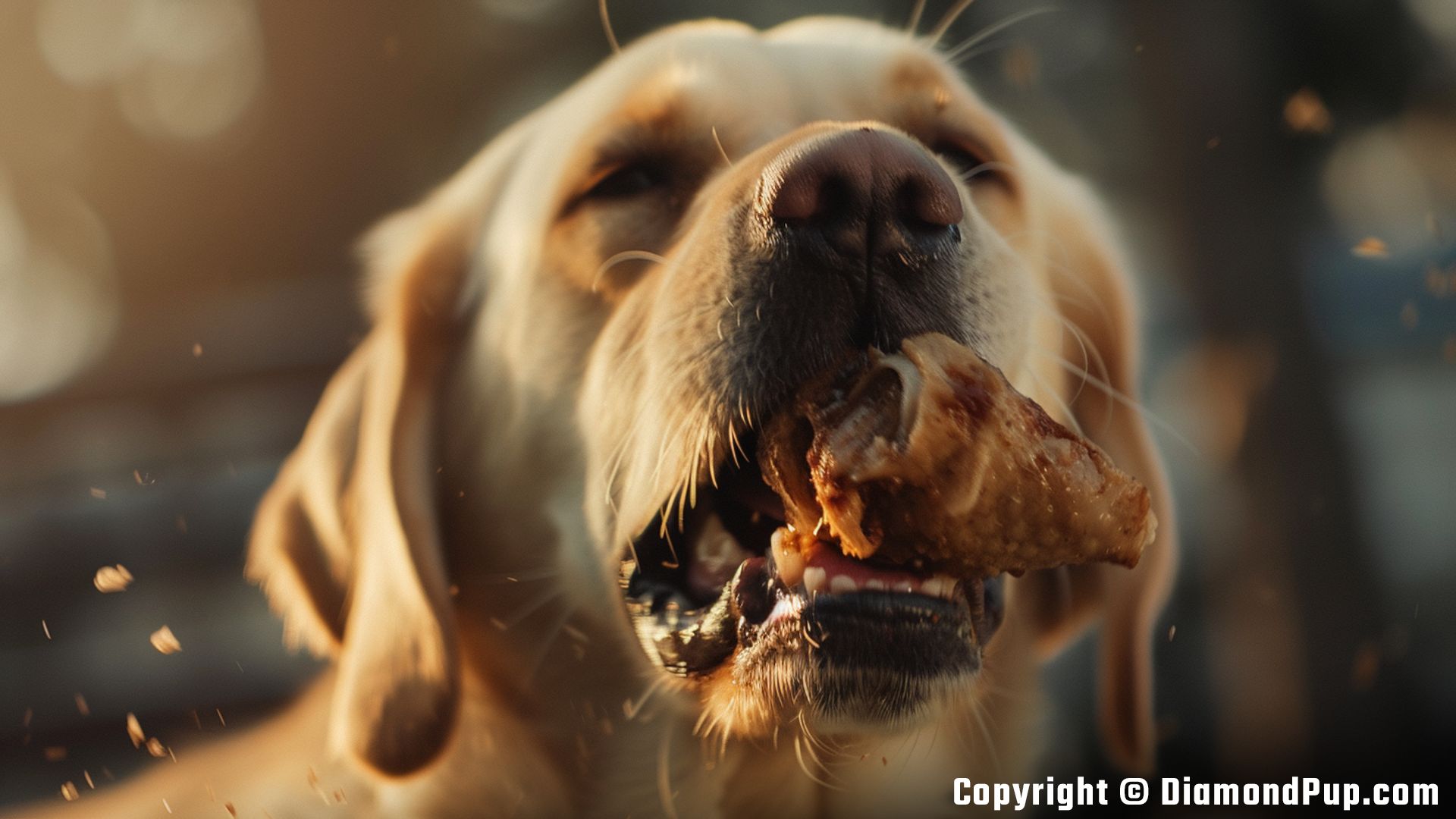
Are there any Labradors that shouldn't eat Chickens?
While Labradors, in general, can safely enjoy chicken as part of their diet, there are some individual dogs within the breed who may have specific dietary restrictions or sensitivities. For example, Labradors with a history of gastrointestinal issues, food allergies, or pancreatitis may not tolerate chicken well and should avoid it. Additionally, senior Labradors or those with certain medical conditions such as kidney disease may require a specialized diet that does not include chicken. It's always best to consult with your veterinarian before introducing any new food to your Labrador's diet, especially if they have any underlying health concerns.
Recipes for Feeding Your Labradors Chickens
When considering the best recipes to feed your Labrador chicken, it's essential to prioritize high-quality, lean cuts of chicken. Opt for boneless, skinless chicken breasts or thighs to minimize the fat content while still providing essential protein. You can cook the chicken by boiling, baking, or grilling it without adding any extra fats or seasonings - plain is best for your pup's digestive system. Additionally, you can incorporate cooked vegetables like sweet potatoes, carrots, or green beans for added nutrients and fiber, making a balanced meal for your Labrador.
Another great recipe idea is to shred cooked chicken and mix it with cooked brown rice or quinoa. This combination offers a good balance of protein, carbohydrates, and essential nutrients for your Labrador's overall health and well-being. Remember to consult with your veterinarian before introducing any new foods into your dog's diet, especially if they have any specific dietary requirements or medical conditions.
Alternatives to Chickens for Labradors
While chicken is a great source of protein for your Labrador, there are also alternative protein options that you can consider incorporating into their diet. Fish such as salmon or mackerel are excellent choices due to their omega-3 fatty acids, which can help support your dog's skin and coat health. Additionally, lean cuts of beef or turkey can also provide a variety of nutrients while still being easy for your Labrador to digest.
It's important to remember that each dog is unique, so it may take some trial and error to determine which protein sources work best for your Labrador. Consulting with your veterinarian can help you create a balanced and enjoyable meal plan for your furry companion.
Common Questions About Labradors and Chickens
One common question that labrador owners often have is whether it is safe for their dogs to consume chicken bones. It is important to note that cooked chicken bones can splinter and pose a choking hazard or cause internal injuries to your labrador. Therefore, it is best to avoid feeding your labrador cooked chicken bones. However, raw bones, such as raw chicken wings, are safer for your labrador to consume as they are softer and less likely to splinter.
Another common concern is whether it is okay to feed labradors chicken skin. While chicken skin can be high in fat and calories, it is generally safe for labradors to consume in moderation. However, excessive consumption of chicken skin can lead to weight gain and other health issues in your labrador. Be sure to remove excess fat and skin from the chicken before feeding it to your furry friend to ensure they maintain a healthy diet.
Subscribe Now
Stay updated with the latest news and articles! We'll keep you updated on the latest tips for your pet Labrador
